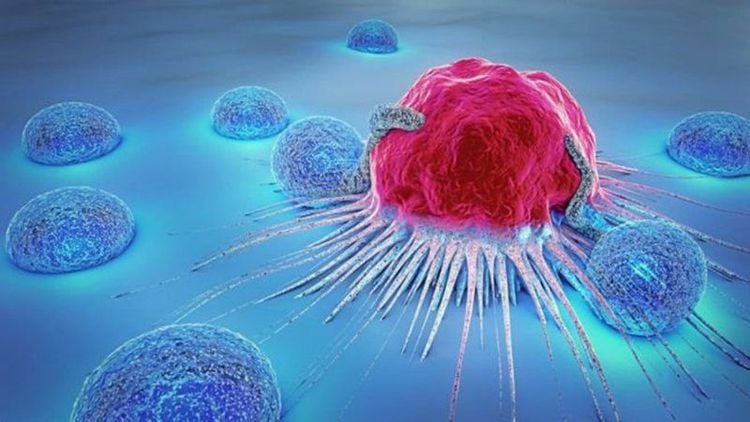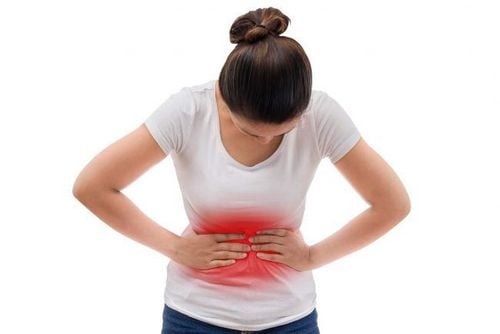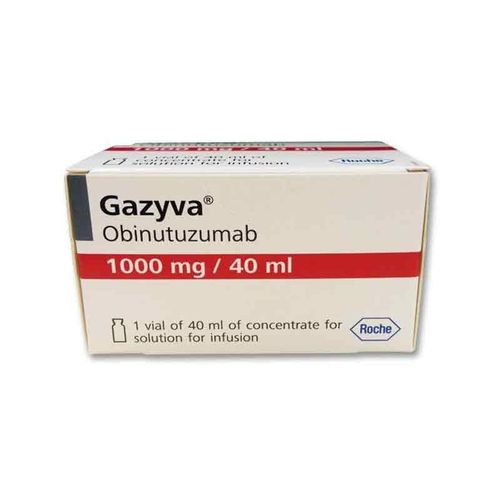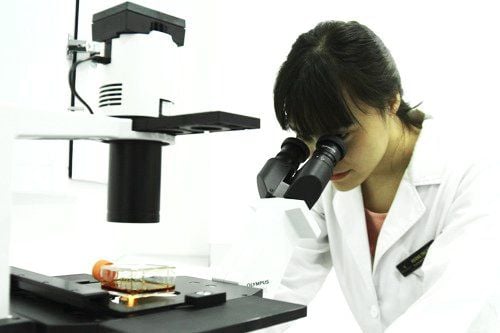This is an automatically translated article.
Carcinoid tumors are unusual, slow-growing cancers. Tumors often arise from many organs in the body, mainly from the gastrointestinal tract such as the stomach, small intestine, colon, appendix, rectum, etc. It can even come from the lungs, ovaries and sperm. complete,...1. What is a carcinoid tumor?
Carcinoid tumors are unusual and slow-growing cancers. Tumors arise from many organs in the body, especially neuroendocrine cells in the gastrointestinal tract accounting for about 90%, pancreas and bronchopulmonary. More than 95% of gastrointestinal carcinoid tumors develop at three sites: the ileum, rectum, and appendix. The majority of carcinoid tumors are benign or only invade the adjacent area, however those affecting the bronchus and ileum are usually malignant.Carcinoid tumors have many characteristics that are different from those of common cancers. The disease progresses very slowly and there are few symptoms unless it is at an advanced stage. When viewed under the microscope, carcinoid tumors still show no abnormalities, even at the metastatic stage. Carcinoid tumors can produce and release hormones into the body, thereby causing abnormal symptoms such as diarrhea, hot flashes, ...

2. What symptoms do carcinoid tumors cause?
In the early stages, the disease often causes no symptoms, so it is difficult to diagnose carcinoid tumors early. In many cases, carcinoid tumors are discovered incidentally during other physical examinations. Depending on the location of the tumor, there are the following symptoms:2.1. Gastrointestinal carcinoid tumor Tumor in the stomach: patients often present with abdominal pain. Tumors in the small intestine and colon: abdominal pain, disturbances in bowel movements and sometimes with intestinal obstruction. Rectal tumor: pain and rectal bleeding.
Trắc nghiệm: Thử hiểu biết của bạn về bệnh ung thư
Ung thư là nguyên nhân gây tử vong hàng thứ 2 trên thế giới. Thử sức cùng bài trắc nghiệm sau đây sẽ giúp bạn có thêm kiến thức về yếu tố nguy cơ cũng như cách phòng ngừa bệnh ung thư.
Bài dịch từ: webmd.com
2.2 Lung carcinoid tumor Lung carcinoid tumor with symptoms of chest pain, cough, and recurrent pneumonia. In some cases, blood may be coughed up. In addition, the patient may have other symptoms caused by carcinoid tumors, which are:
Hot flushes in the face and neck Prolonged and severe diarrhea Shortness of breath A whistling sound Heart pounding fast and strong Fatigue Swollen legs and feet ankle area Abdominal pain or feeling of fullness. However, these symptoms are usually not specific to carcinoid tumors and they can be caused by other conditions. But when the symptoms increase and persist, the patient should immediately go to a medical facility for examination and treatment when necessary.

3. Causes of Carcinoid Tumors
The cause of carcinoid tumors is currently unknown. However, carcinoid tumors are both hormone-secreting and have neuroendocrine-like features, because the tumor originates from cells of the neuroendocrine system. In the digestive system, neuroendocrine cells regulate the release of digestive juices and control the movement of food in the intestines and stomach. In addition, may help control the growth of other types of cells in the digestive system.In the lungs, neuroendocrine cells help control the flow of air and blood, possibly controlling the growth of other lung cells. Carcinoid tumors occur when neuroendocrine cells overgrow and change. The cause of the tumor growing faster and causing symptoms is not clear, while in some cases the tumor remains small and does not show any symptoms.
Carcinoid tumors can appear at any age but are more common in the elderly. Carcinoid tumors are more common in women than in men. The risk is increased if a close family member has a carcinoid tumor. In addition, a family history of type 1 multiple endocrine neoplasia is also considered a risk factor for carcinoids. Besides, smoking and diseases such as stomach acid does not produce, gastritis, pernicious anemia also increase the risk of gastrointestinal carcinoids.
4. Methods of treating carcinoid tumors
Treatment for carcinoid tumors depends on whether the tumor has spread or not. If the tumor has not metastasized, surgery can be performed to remove the tumor. However, for cases where the tumor has metastasized, other treatments need to be performed such as:Slowing the growth of the tumor: As monthly injections of octreotide can slow the rate of tumor growth and and at the same time relieve symptoms such as diarrhea, hot flushes,... The intervention is to stop the blood supply to the tumor that has metastasized to the liver by blocking the hepatic artery. Care should be taken when performing this procedure because it can cause some complications, so before performing the procedure, the doctor will discuss carefully with the patient. Using heat: Using radio waves to generate heat, which is transmitted through the needle, close to cancer cells in the liver, helping to destroy these cells. This method is indicated for patients with some small metastases in the liver. Chemo: Chemicals work to destroy and shrink tumors.

5. Complications from carcinoid tumors
Some of the complications caused by carcinoid tumors include:5.1. Cardiovascular Complications Carcinoid hormones can cause thickening of the lining of the heart's chambers, blood vessels, and valves. In particular, the right chamber of the heart will be affected more than the left chamber. As a result, it leads to regurgitation of the mitral and tricuspid valves, but causes stenosis of the pulmonary valve. If left untreated, these conditions can lead to serious conditions such as an enlarged heart and heart failure.
5.2. Cushing's syndrome Carcinoid tumors in the lungs are capable of producing too much of the hormone ACTH. This stimulates the adrenal glands to produce too much of the hormone cortisol. When this condition persists, it leads to Cushing's syndrome.
5.3. Acromegaly The growth hormone GH is increased due to the overproduction of carcinoid tumors in the lungs, causing acromegaly.
5.4. Stomach ulcers Some carcinoid tumors of the stomach secrete too much of the hormone gastrin, which stimulates the stomach to produce more acid. This leads to stomach ulcers that cause gastric bleeding and even gastric perforation.
5.5. Intestinal obstruction Large carcinoid tumors in the intestine can obstruct the bowel. If this condition is prolonged, it can cause necrosis of the intestine at the site of obstruction leading to intestinal perforation, sepsis, and severe shock with a high mortality rate.

Currently, Vinmec International General Hospital has been and continues to be fully equipped with modern diagnostic facilities such as: PET/CT, SPECT/CT, MRI... biology, immunohistochemistry, genetic testing, molecular biology testing, as well as a full range of targeted drugs, the most advanced immunotherapy drugs in cancer treatment.
After having an accurate diagnosis of the disease, the stage, the patient will be consulted to choose the most appropriate and effective treatment methods. The treatment process is always closely coordinated with many specialties to bring the highest efficiency and comfort to the patient. After undergoing the treatment phase, the patient will also be monitored and re-examined to determine whether the cancer treatment is effective or not.
Especially, now to improve service quality, Vinmec also deploys many cancer screening packages that can help customers detect cancer early before there are no symptoms, bringing a better prognosis. treatment and a high chance of recovery.
Please dial HOTLINE for more information or register for an appointment HERE. Download MyVinmec app to make appointments faster and to manage your bookings easily.













